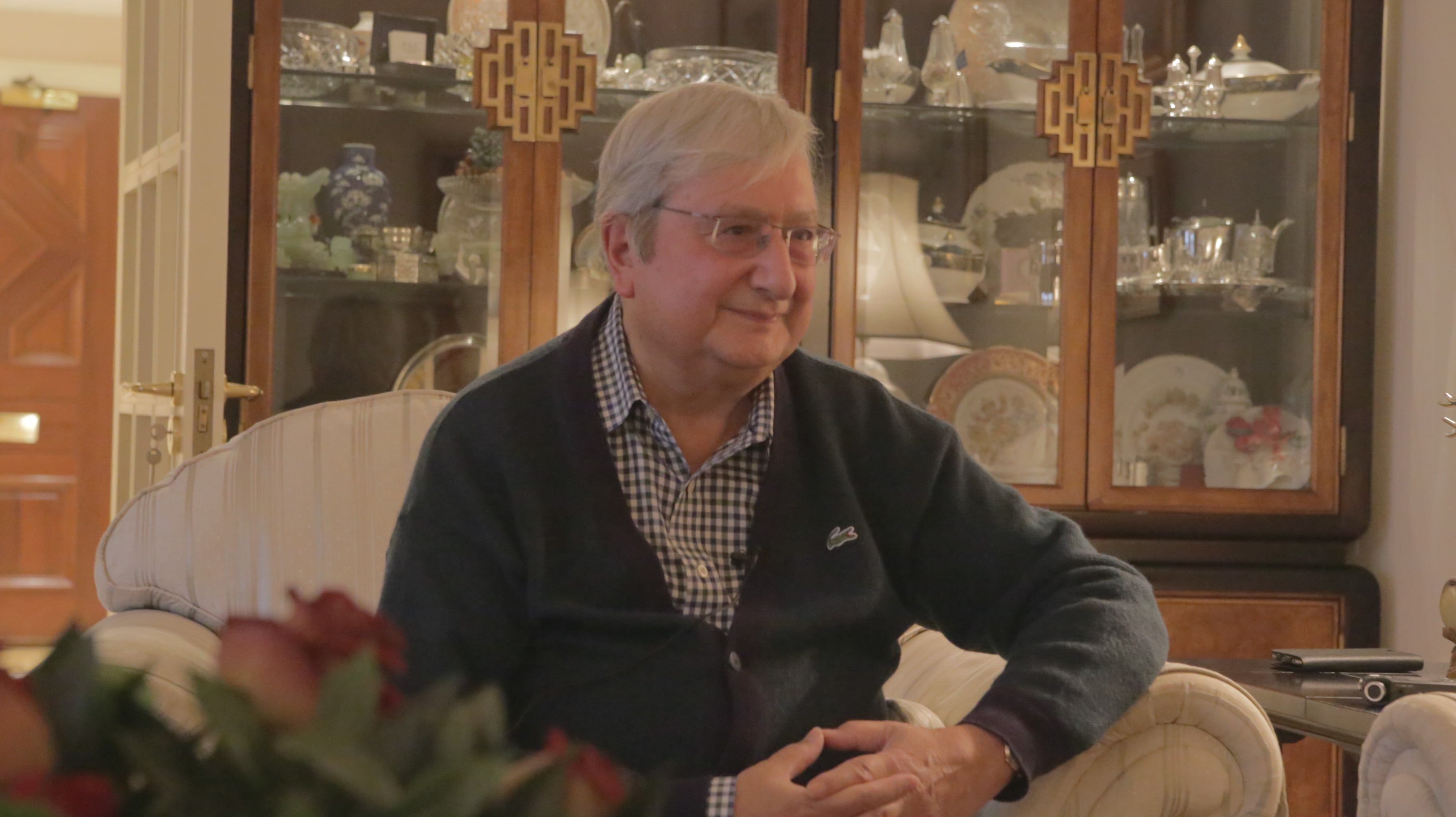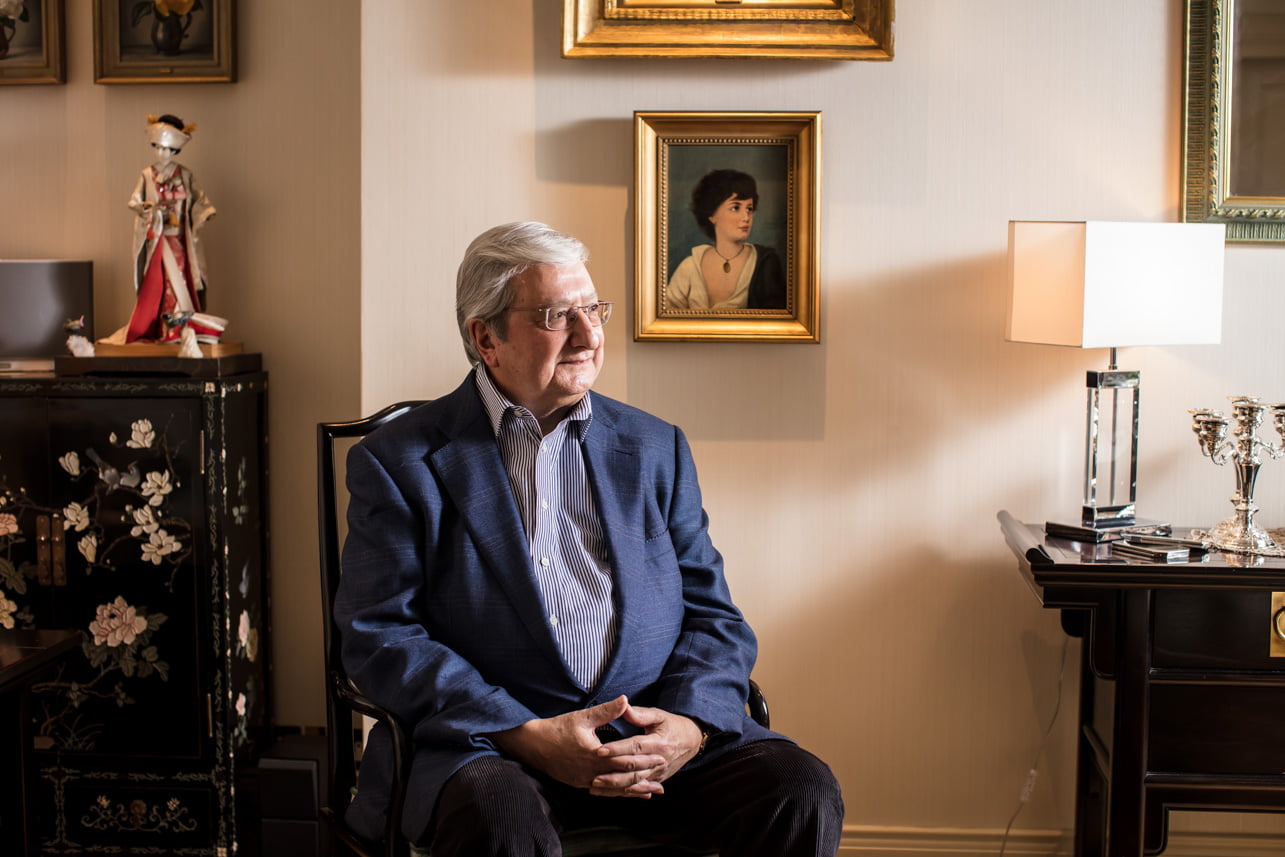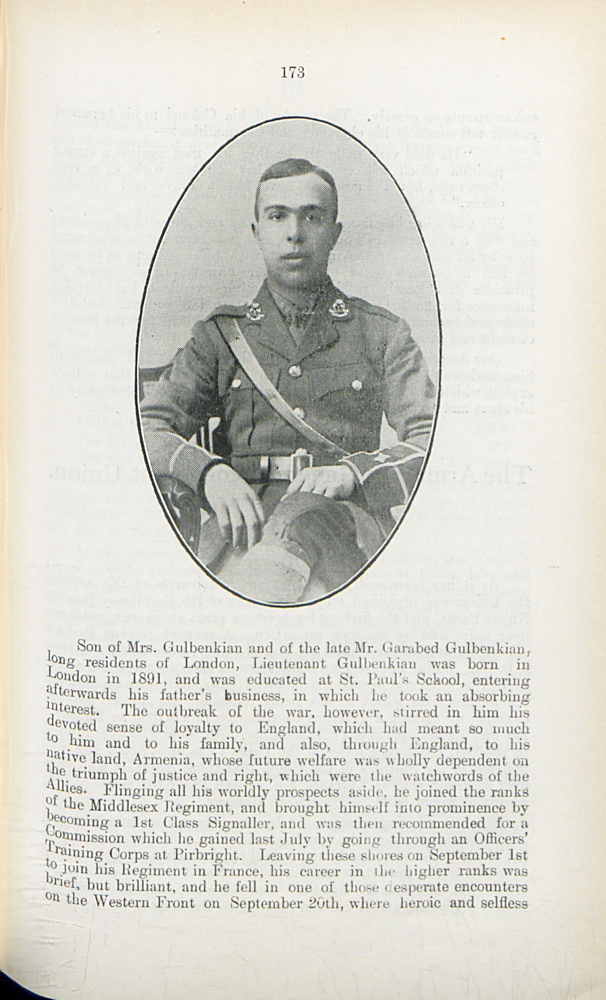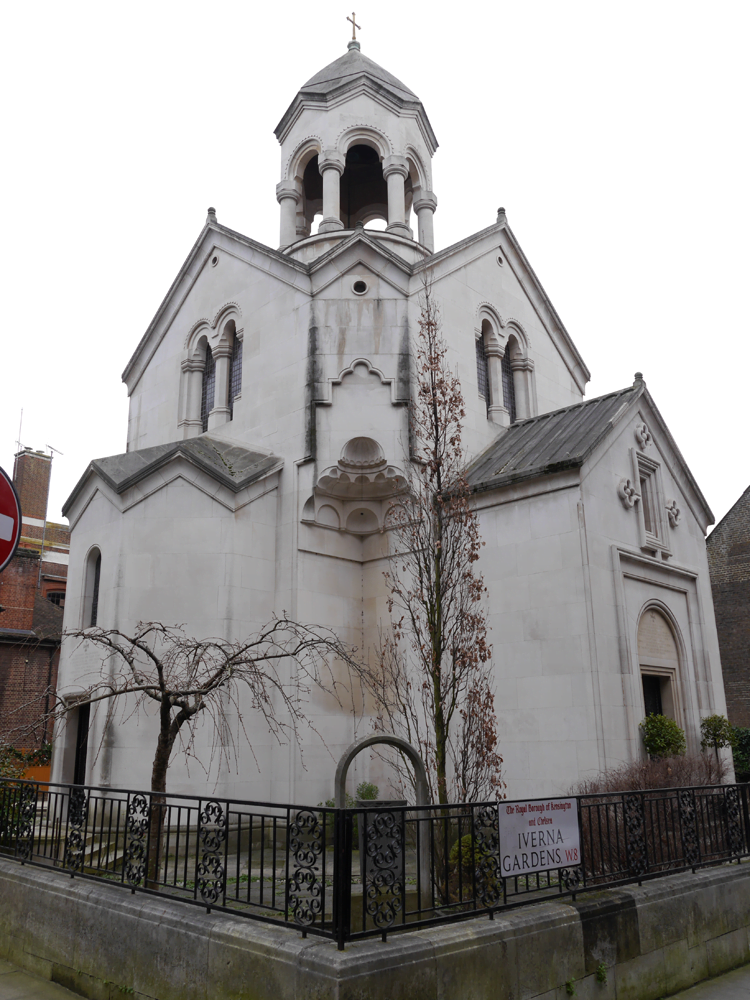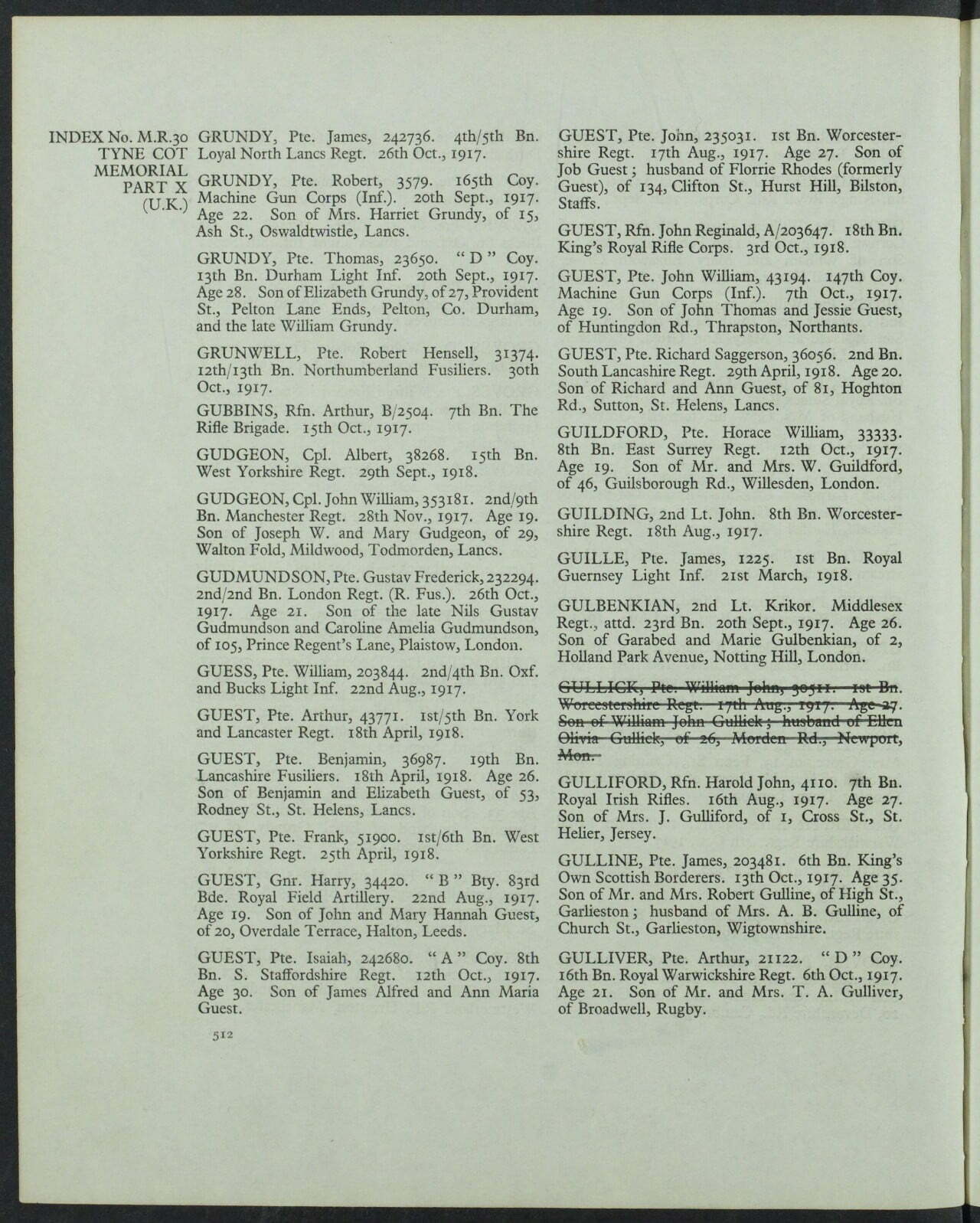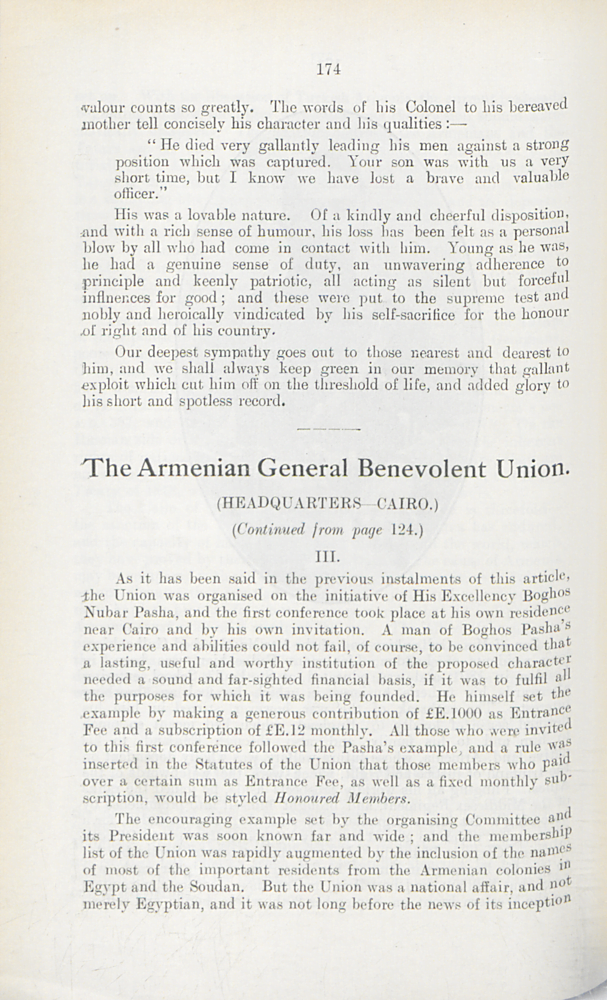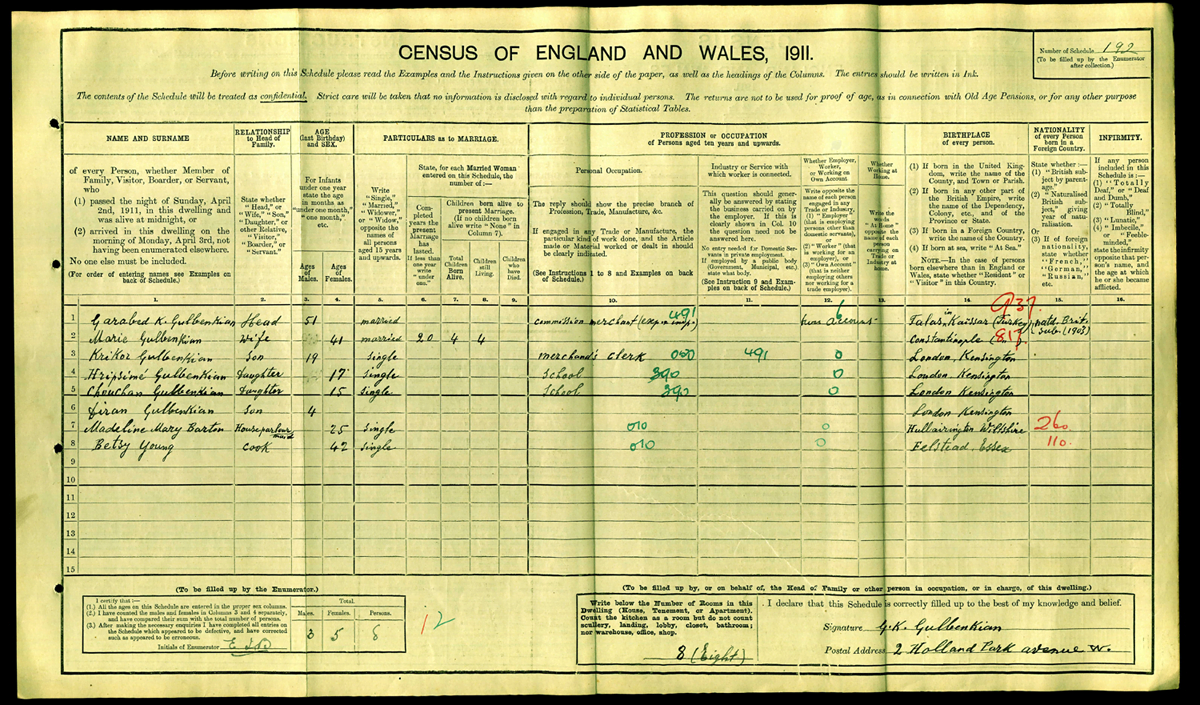Krikor Gulbenkian
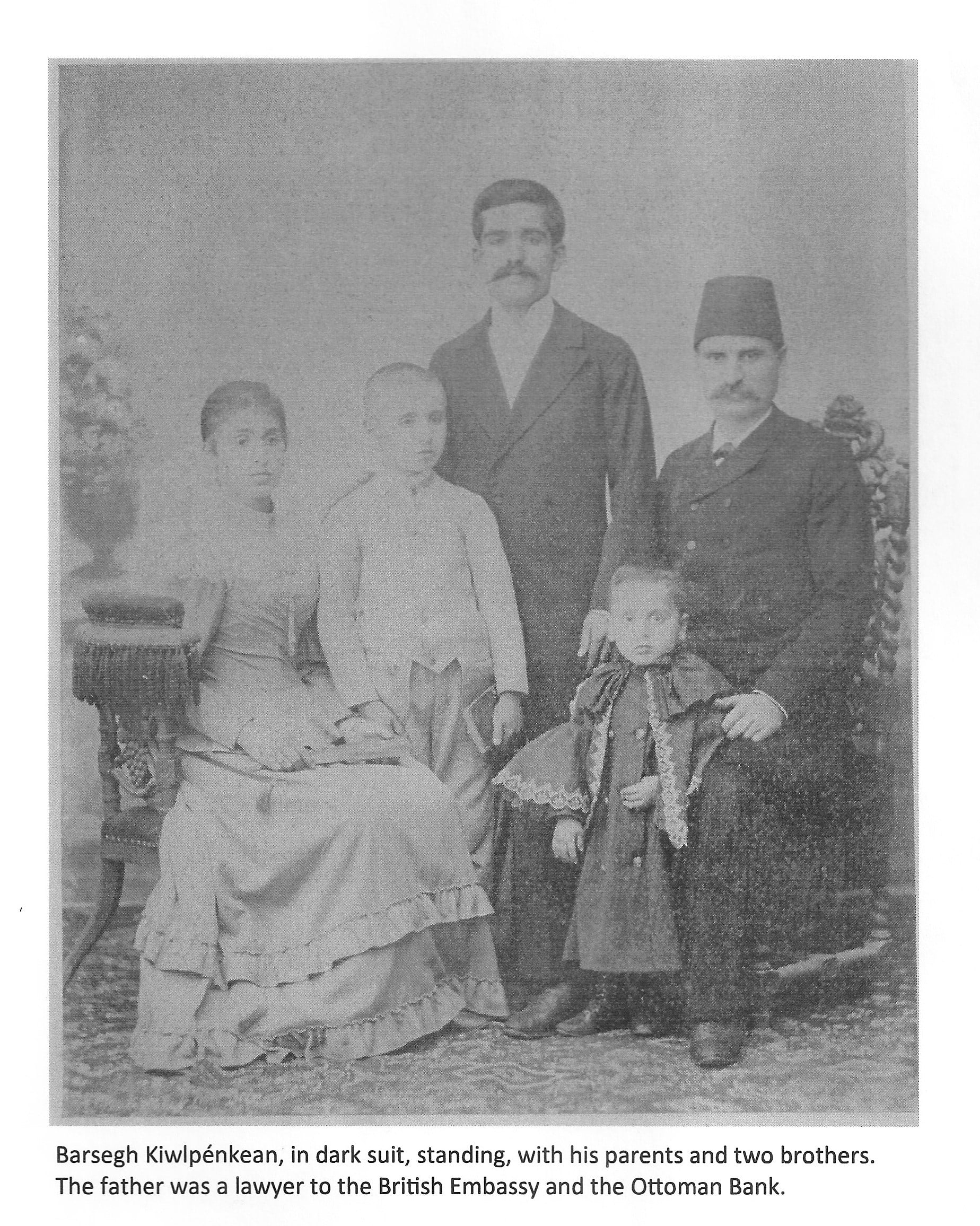
Krikor Gulbenkian was born in London in 1892 to Garabed and Marie Gulbenkian. They both came from Western Armenia and Garabed, a merchant, was naturalised as a British citizen in 1903.
The family lived at 2 Holland Park Avenue with Krikor, their eldest son and three younger children – Hripsime, Chuchan and Diran. During the 1911 census Krikor is registered as a merchant’s clerk. and In 1914 he enlisted in the British Army, joining the Middlesex Regiment as a first class Signaller. After being recommended for a commission in February 2017, Krikor trained as an officer in the UK before returning to the Western Front as a second Lieutenant on 1 September 1917. He died on 20 September 1917 in the Third Battle of Ypres, while serving with the 23rd (Service) Battalion as a second Lieutenant of the Middlesex Regiment.
His Obituary from Ararat: Searchlight to Armenia
“Son of Mrs. Gulbenkian and of the late Mr. Garabed Gulbenkian, long residents of London, Lieutenant Gulbenkian was born in London in 1891, and was educated at St. Paul’s School, entering afterwards his father’s business, in which he took an absorbing interest. The outbreak of the war, however, stirred in him his devoted sense of loyalty to England, which had meant so much to him and to his family, and also, through England, to his native land, Armenia, whose future welfare was wholly dependent on the triumph of justice and right, which were the watchwords of the Allies. Flinging all his worldly prospects aside, he joined the ranks of the Middlesex Regiment, and brought himself into prominence by becoming a 1st Class Signaller, and was then recommended for a Commission which he gained last July by going through an Officers’ Training Corps at Pirbright. Leaving these shores on September 1st to join his Regiment in France, his career in the higher ranks was brief, but brilliant, and he fell in one of those desperate encounters on the Western Front on September 20th, where heroic and selfless valour counts so greatly. The words of his Colonel to his bereaved mother tell concisely his character and his qualities:
“He died very gallantly leading his men against a strong position which was captured. Your son was with us a very short time, but I know we have lost a brave and valuable officer.”
His was a lovable nature. Of a kindly and cheerful disposition, and with a rich sense of humour, his loss has been felt as a personal blow by all who had come in contact with him. Young as he was, he had a genuine sense of duty, an unwavering adherence to principle and keenly patriotic, all acting as silent but forceful influences for good; and these were put to the supreme test and nobly and heroically vindicated by his self-sacrifice for the honour of right and of his country.
Our deepest sympathy goes out to those nearest and dearest to him, and we shall always keep green in our memory that gallant exploit which cut him off on the threshold of life, and added glory to his short and spotless record.”

